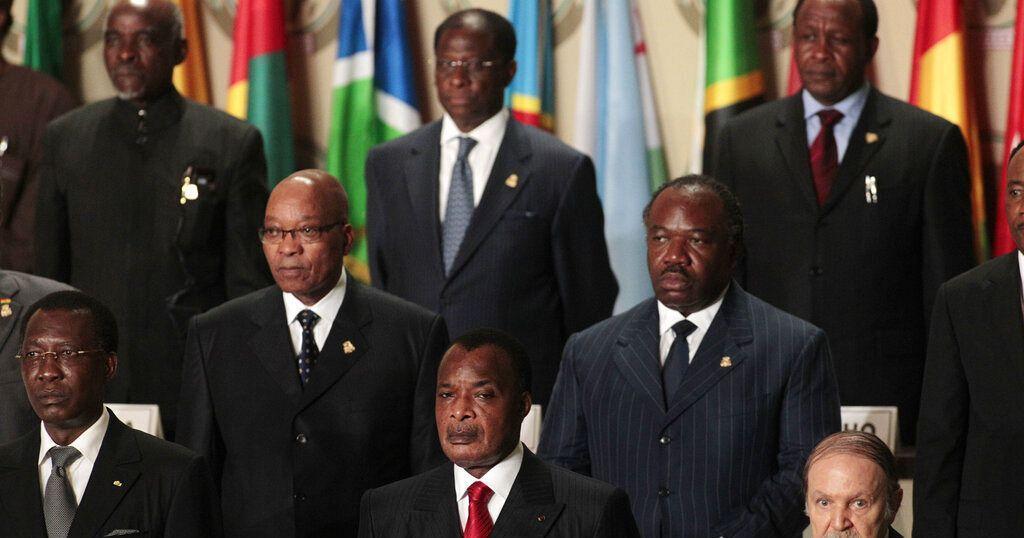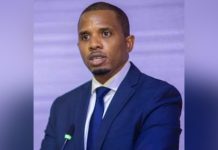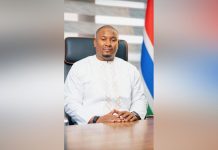Africa-Press – Gambia. Just months after his return to power in December 2024, Ghana’s President John Mahama faces a critical challenge that could define his second term: managing a ballooning public debt while offering relief to citizens worn down by years of austerity.
According to a new joint white paper from Pangea-Risk and Acre Impact Capital, titled the Mahama administration has scrapped five taxes introduced in 2023 under IMF loan conditions, including a 1% levy on mobile money transfers and VAT on vehicle insurance. These tax cuts, worth an estimated $430 million annually, aim to ease the burden on households but risk widening Ghana’s fiscal deficit and straining its $3 billion IMF program.
“The removal of IMF-linked taxes may further constrain Ghana’s fiscal position and complicate its relationship with the IMF,”the report warns. As Ghana remains largely locked out of international credit markets, the government’s push to renegotiate IMF terms underscores the tightrope it must walk between economic populism and fiscal discipline.
Across Africa, the election cycles of 2024 and 2025 are stress-testing public finances in fragile democracies. From Ghana to Gabon, political transitions, some peaceful, others turbulent, are reshaping investor sentiment, altering fiscal strategies, and exposing deep-seated vulnerabilities in African debt economies.
In South Africa, the African National Congress (ANC) lost its parliamentary majority for the first time in 30 years, paving the way for a coalition Government of National Unity (GNU). While markets initially welcomed the GNU, with the rand appreciating by 4%, increased appetite for local bonds, and record highs on the Johannesburg Stock Exchange, the honeymoon appears to be fading.
the report notes, warning that this concession will limit revenue growth. South Africa’s public debt is expected to peak at 76.2% of GDP in 2025/26, with debt servicing projected to consume 22% of government revenue. Yet the country’s strong domestic creditor base provides a buffer against global volatility.
Cameroon presents a different picture, with political uncertainty at the core of its economic fragility. President Paul Biya, now 92, is set to run again in the October 2025 elections, stoking concerns about leadership continuity. “Speculation over his health and succession has rattled domestic and external stakeholders,” the report says.
The country’s IMF program expires in July, with continued support contingent on tough fiscal reforms, including a $151 million surplus by March, restrained borrowing, and a sharp increase in non-oil tax revenues to $1.67 billion. Yet in November 2024, Cameroon managed to raise less than 30% of its $22 million bond issuance target, reflecting investor wariness amid political uncertainty.
Not all stories are cautionary. Côte d’Ivoire, despite rising political tension over a potential fourth-term bid by President Alassane Ouattara, continues to display fiscal resilience. “The country’s adherence to reform and sound debt management has earned it credit rating upgrades and positive IMF reviews,” the report states.
With a vibrant economy driven by oil, gas, and mining, Côte d’Ivoire is on track to cut its fiscal deficit from 4.5% in 2024 to 3% in 2025. In December 2024, it launched a landmark debt swap backed by the World Bank, converting $420 million in expensive commercial debt into concessional financing, a move projected to save $350 million over five years.
Meanwhile in Gabon, the transition from military rule is unfolding with both urgency and risk. The interim government, led by General Brice Oligui Nguema following the 2023 coup, has scheduled elections for April 12, 2025, in a bid to regain international legitimacy.
Despite strained public finances, the government has increased infrastructure spending by 67% and public sector wages by 12%. These moves have pushed Gabon’s debt-to-GDP ratio past the 70% threshold set by the Economic and Monetary Community of Central Africa (CEMAC), with projections pointing to more than 80% in 2025.
In January 2025, the World Bank suspended funding over $27 million in unpaid arrears. To avert default on a $605 million Eurobond due in June, Gabon orchestrated a buyback of half the bond via Morocco’s Attijariwafa Bank and issued a new $570 million Eurobond in February. “Though costly, the refinancing has eased immediate repayment pressures,” the report explains. A peaceful election in April could strengthen Gabon’s hand in IMF negotiations and unlock concessional financing for infrastructure.
For More News And Analysis About Gambia Follow Africa-Press






